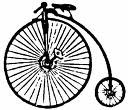Thanks to those who commented. From feedback received, my own ideas and habits, and some reading I have done, I have come up with the following:
- Buy-one-get-one-frees: only buy if you have cash, space to store, and the items won't go off before they can be used.
- If you haven't much space to store bulk-bought items, consider clubbing together with friends or family to buy them between you, and share the benefit of the discounts.
- Consider own brands vs branded items: compare the price per 100g, but generally own brands will be cheaper, and taste just as good.
- Plan meals, even roughly, before you go shopping, bearing in mind how many meals you need to cater over the week, and buy only what you need for those.
- If you eat a lot of ready meals, consider cutting those down and cooking more; this will be cheaper as well as healthier. Something on toast, e.g beans and poached egg, will cost less and be quick to prepare, as an alternative to a ready meal.
- Keep a running shopping list on the fridge and add to it as you run out of things, so you don't forget anything when you go shopping.
- Don't go shopping when you are tired, hungry, or in a hurry.
- Set a cash budget for food per week; take cash out at the beginning of the week, and use this to pay for groceries until it runs out. (This will help with budgeting, and also it is psychologically harder to spend cash than use cards.)
- Try to last one day longer than you think you can manage without going food shopping, and make that last meal with what you have left in the cupboard.
- Try and make enough food for two or three meals, in one go: e.g make enough spaghetti bolognaise to turn this into chilli the following day, or freeze half of what you make for another day.
- Pick-your-own fruit and vegetables when it is cheapest, and store in the freezer or use to make jams or chutney.
- Even if you don't do PYO, then still buy fruit and vegetables that are in season.
- Keep cleaning products to the basics: supermarket own-brands will generally be much cheaper and no less effective than branded products.
- Buy Christmas paper, cards, and birthday cards when you see them on special offer, if you can store them. (Or make your own.)
- Check washing instructions before you buy new clothes, and avoid those which need dry-cleaning.
- Buy shoes with soles which can be repaired or replaced.
- Sign up to receive nectar or clubcard points, don't buy things in order to get extra points, however.
- Processed cereals are expensive and not very nutritious; porrige or homemade muesli are filling, cheap and healthy.
- Avoid, or minimise, fizzy drinks. Squash, or one nice idea I read, lemon juice and sugar, make an alternative soft drink.
- Compare prices online before you go shopping, e.g at http://www.mysupermarket.co.uk/
- Watch the cash register and look at your receipt before you leave the shop, to avoid mistakes.
- If you are going to the shop to buy a pint of milk, don't pick up a basket; if you are planning to buy a few items, take a basket rather than a trolley.
- Toiletries will likely be more expensive in a supermarket than chemist.
- Check whether loose or packaged fruit and vegetables are cheaper; loose generally cost less.
- If you do buy bags of fruit and vegetables then weigh them to ensure you are getting the correct weight.
- Instead of cooking large portions of meat, cook pasta, rice or beans to accompany a small amount of meat.
- If you are a meat-eater, try having a few meatless days a week.
- PS - If carrier bags are charged for where you shop, take your own. Otherwise, use the free ones for reuse as bin liners.





No comments:
Post a Comment